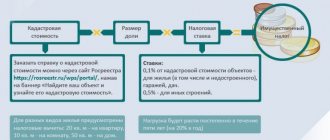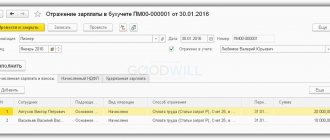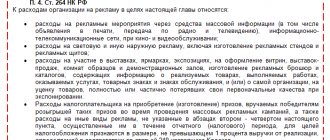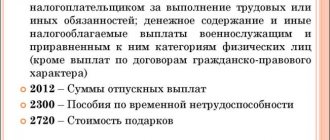According to the general rule enshrined in paragraph 1 of Art. 284 of the Tax Code of the Russian Federation, the income tax rate is 20%, unless otherwise established by this article. For example, by virtue of clause 1.1, a 0% rate is applied to the tax base determined by organizations engaged in educational and (or) medical activities, taking into account the features provided for in Art. 284.1 Tax Code of the Russian Federation.
Please note that the above standards are valid from 01/01/2011 to 01/01/2020. That is, these organizations have a little more than a year left to take advantage of the designated benefit (unless legislators make appropriate changes and extend the established period).
Based on the explanations given in the letters of the regulatory authorities, we will consider the procedure for applying Art. 284.1 Tax Code of the Russian Federation.
Who is eligible to apply the 0% tax rate?
Based on the provisions of paragraphs 1 , 2 of Art. 284.1 of the Tax Code of the Russian Federation , organizations carrying out educational and (or) medical activities in accordance with the legislation of the Russian Federation have the right to apply a tax rate of 0% subject to a number of conditions established by this article.
The zero rate applies to the entire tax base determined by such taxpayers throughout the entire tax period .
For the purposes of applying this article, educational and medical activities are recognized as activities included in the List of types of educational and medical activities (hereinafter referred to as the List ).
Activities related to spa treatment are not considered medical activities.
Sanatorium and resort organizations providing medical treatment include organizations that have the status of treatment and preventive organizations and operate on the basis of a license to conduct medical activities granted in accordance with the legislation of the Russian Federation.
Taking into account the fact that for the purposes of applying the provisions of Art. 284.1 of the Tax Code of the Russian Federation , activities related to sanatorium and resort treatment do not apply to medical activities; the application of a 0% rate by organizations engaged in sanatorium and resort activities is not provided for ( Letter of the Ministry of Finance of Russia dated May 18, 2012 No. 03-03-06/1/252 ).
Organizations that have expressed a desire to apply a 0% tax rate, no later than one month before the start of the tax period from which this rate is applied, submit to the tax authority at their location an application, copies of the license (licenses) to carry out educational and (or) medical activities issued (issued) in accordance with the legislation of the Russian Federation ( clause 5 of Article 284.1 of the Tax Code of the Russian Federation ).
Please note that
the Tax Code does not establish the obligation of educational or medical organizations that switched to using a 0% tax rate from the beginning of the tax period and continue to apply it in subsequent tax periods if they meet the conditions provided for in Art. 284.1 of the Tax Code of the Russian Federation , annually submit relevant statements to the tax authorities. Thus, an application for a transition to the application of a 0% tax rate is submitted by the organization once for the entire period of application of this rate (see Letter of the Ministry of Finance of Russia dated December 27, 2011 No. 03-03-06/4/151 ).
Important nuance
The preferential tax regime does not apply to activities related to sanatorium and resort treatment, since it is not medical, as expressly stated in paragraph 1 of Art. 284.1 Tax Code of the Russian Federation.
Note. Organizations whose activities are related to sanatorium and resort treatment cannot apply for a 0% rate.
Since we are talking about the type of activity, tax authorities, when checking the legality of taxpayers applying a preferential rate, obviously pay attention to the codes of the types of their economic activities contained in the Unified State Register of Legal Entities. Let us recall that information about the economic activities of a legal entity is reflected in its constituent documents and is subject to mandatory indication in the application for state registration upon creation. According to paragraphs. "p" clause 1 art. 5 of Law N 129-FZ (Federal Law of 08.08.2001 N 129-FZ “On State Registration of Legal Entities and Individual Entrepreneurs”) in the Unified State Register of Legal Entities, information about the organization must contain codes according to the All-Russian Classifier of Types of Economic Activities (OKVED) (Adopted and put into effect by Decree of the State Standard of Russia dated November 6, 2001 N 454-st). Moreover, the determination of the code of a classification object related to the activities of an economic entity is carried out by it independently by assigning this object to the corresponding code and name of the Classifier position (except for cases established by the legislation of the Russian Federation).
Note. This is indicated in paragraph 9 of the Methodological Explanations on the procedure for filling out document forms used for state registration of a legal entity, approved by Order of the Federal Tax Service of Russia dated November 1, 2004 N SAE-3-09/ [email protected]
Medical institutions (OKVED code 85.11) can have one of two codes:
- 85.11.1 - activities of general and specialized hospital institutions;
- 85.11.2 - activities of sanatorium and resort institutions.
It is likely that if the Unified State Register of Legal Entities contains information about the implementation of economic activities by a legal entity with the code according to OKVED 85.11.2, the regulatory authorities will be against the application of a preferential tax regime. Moreover, it does not matter that the sanatorium-resort institution has one or even several licenses to carry out medical activities included in the List.
This is the position of the financial department, set out in Letter dated May 18, 2012 N 03-03-06/1/252. In it, officials considered the issue of applying a zero rate to an organization that carries out, on the basis of appropriate licenses, more than three dozen types of medical activities included in the established Art. 284.1 Tax Code of the Russian Federation List. However, all medical services of the organization are related to spa treatment. According to the Ministry of Finance, in such a situation the taxpayer does not have the right to apply a 0% rate of income tax due to the provisions of Art. 284.1 Tax Code of the Russian Federation. After all, this legal norm clearly establishes that activities related to sanatorium-resort treatment do not qualify as medical, and therefore the use of preferential tax treatment by organizations carrying out this type of activity is not provided. At the same time, the Ministry of Finance advised to contact the Ministry of Health and Social Development on all questions regarding the definition of activities related to sanatorium-resort treatment (see also Letter of the Ministry of Finance of Russia dated June 24, 2011 N 03-03-06/1/379).
It should be noted that Art. 284.1 of the Tax Code of the Russian Federation establishes another restriction regarding the types of activities of educational and (or) medical organizations. By virtue of paragraphs. transactions with bills of exchange and financial instruments of futures transactions during the tax period .
Conditions for applying a zero rate for income tax
According to paragraph 3 of Art. 284.1 of the Tax Code of the Russian Federation, organizations have the right to apply a tax rate of 0% if the following conditions are met:
- the organization has a license (licenses) to carry out educational and (or) medical activities, issued (issued) in accordance with the legislation of the Russian Federation ( clause 1 );
- The organization's income for the tax period from educational activities, childcare and (or) medical activities, as well as from R&D, constitutes at least 90% of its income taken into account when determining the tax base in accordance with Chapter. 25 of the Tax Code of the Russian Federation , or the organization for the tax period does not have income taken into account when determining the tax base in accordance with Chapter. 25 of the Tax Code of the Russian Federation ( paragraph 2 );
- in the staff of an organization carrying out medical activities, the number of medical personnel with a specialist certificate in the total number of employees continuously during the tax period is at least 50% ( clause 3 );
- the organization continuously employs at least 15 employees during the tax period ( clause 4 );
- The organization does not carry out transactions with bills and derivative financial instruments during the tax period ( clause 5 ).
Let's look at these conditions in more detail.
Conditions for applying preferential taxation
According to the general rule established by paragraph 1 of Art. 284 of the Tax Code of the Russian Federation, the tax rate for income tax is 20%, except for the cases provided for in clauses 1.1 - 5.1 of this article. By virtue of clause 1.1 of Art. 284 of the Tax Code of the Russian Federation, to the tax base determined by organizations carrying out educational and (or) medical activities (with the exception of the tax base, the tax rates for which are established in paragraphs 3 and 4 of this article), a 0% rate is applied, taking into account the features provided for in Art. . 284.1 Tax Code of the Russian Federation. According to paragraph 1 of this article, organizations when conducting these types of activities have the right to apply a zero rate for income tax, that is, in fact, not pay this tax. This circumstance, according to the author, allows us to consider this taxation procedure preferential, which, by virtue of Part 6 of Art. 5 of Federal Law N 395-FZ is valid from January 1, 2011 until January 1, 2021. However, to be exempt from income tax, business entities must meet several conditions.
Note. Organizations carrying out educational and (or) medical activities in accordance with the legislation of the Russian Federation have the right to apply a 0% rate for income tax in the period from 01/01/2011 to 01/01/2020.
About the availability of a license
Relations arising between executive authorities and business entities in connection with the licensing of certain types of activities are regulated by the Licensing Law . The list of activities for which licenses are required is established in Part 1 of Art. 12 of this law, which, among others, mentions educational ( clause 40 ) and medical activities ( clause 46 ) (with the exception of activities carried out by organizations located in the territory of the innovation).
According to clause 2, part 1, art. 5 of the Law on Licensing The Government of the Russian Federation approves provisions on licensing of specific types of activities and adopts regulatory legal acts on licensing issues.
Thus, the regulation on licensing medical activities was approved by Decree of the Government of the Russian Federation dated April 16, 2012 No. 291 , on licensing of educational activities - by Decree of the Government of the Russian Federation dated October 28, 2013 No. 966 .
The procedure for licensing educational activities is also regulated by paragraph 91 of the Law on Education .
Is it legal for an educational (medical) organization to apply a zero rate in the current tax period (2018) if the license expires in December of this period?
Explanations on this issue are given in the Letter of the Federal Tax Service for Moscow dated January 30, 2012 No. 16‑12/ [email protected] . For the current period they should be applied as follows.
The organization must have a valid license to carry out educational and (or) medical activities at the end of the tax period (as of December 31, 2018). Otherwise, she cannot apply the zero rate in her income tax return for this period. Accordingly, if a similar condition is not met in the next year, 2021, then the 0% tax rate should not be declared in declarations for the reporting periods of 2021 before the date of registration of the new license.
About the income structure
One of the conditions for applying the 0% tax rate is the criterion according to which the organization’s income for the tax period from educational activities, childcare and (or) medical activities, as well as from R&D activities constitute at least 90% of its income ( Subclause 2, Clause 3, Article 284.1 of the Tax Code of the Russian Federation ).
However, the provisions of this norm do not establish requirements for rounding the specified criterion to whole units. Thus, if the percentage was less than 90% of income, for example, 89.8%, then the organization does not have the right to apply a zero tax rate. This opinion was expressed by the Ministry of Finance in Letter dated May 23, 2012 No. 03-03-06/4/46 .
Let us note that from a literal reading of the above norm of the Tax Code it follows that in order to apply the zero rate it is necessary to observe the percentage of income only based on the results of the tax period , which the organization states on the basis of clause 6 of Art. 284.1 of the Tax Code of the Russian Federation at the end of the tax period, during which it applied a tax rate of 0%, within the time limits established by Ch. 25 of the Tax Code of the Russian Federation for submitting a tax return, reports to the tax authority at the place of its location in the form contained in the appendix to the Order of the Federal Tax Service of Russia dated November 21, 2011 No. ММВ-7-3/ [email protected] . Such clarifications are given, in particular, in the Letter of the Federal Tax Service for Moscow dated June 20, 2012 No. 16‑15/ [email protected] .
When determining the structure of income, it is necessary to take into account that the income referred to in Art. 251 of the Tax Code of the Russian Federation are not taken into account for tax purposes. For example, for medical and educational organizations this includes income in the form of:
– property received free of charge from the founder of the organization, whose share in the authorized capital is more than 50%, provided that this property is not transferred to third parties within one year from the date of its receipt (except for funds) ( clause 11 p. 1 );
– property received in the form of targeted financing, subject to separate accounting of income (expenses) received (produced) within the framework of such financing ( clause 14, clause 1 );
– property received free of charge by state and municipal educational institutions for conducting main types of activities, as well as property received free of charge by organizations carrying out educational activities, which are non-profit organizations, for conducting educational activities (clause 22, paragraph 1 ).
By virtue of clause 2 of Art. 251 of the Tax Code of the Russian Federation, when determining the tax base, target revenues (with the exception of target revenues in the form of excisable goods) for the maintenance of non-profit organizations and the conduct of their statutory activities are also not taken into account.
In addition, it should be remembered that when determining the 90% ratio, the numerator must take into account income received from activities included in the List .
For example, income in the form of positive exchange rate differences generated in connection with the revaluation of foreign currency loans raised for the reconstruction of a building does not apply to income received from medical activities included in the List . Consequently, such exchange rate differences do not participate in determining the share of income received from medical activities in the total amount of income for the tax period.
Do not include income received from medical (educational) activities, and income in the form of penalties and reimbursement of legal expenses for late fulfillment of obligations under the contract ( Letter of the Ministry of Finance of Russia dated April 25, 2018 No. 03-03-06/1/27941 ).
Let us note that if, when carrying out paid medical activities according to the types of medical activities established by the List , a component of the medical service is the use of special medical products, then, in the opinion of the Ministry of Finance, the cost of these products should form the cost of such a medical service ( Letter dated 02/07/2018 No. 03- 03‑06/1/7248 ).
On determining the number of medical staff
The provisions of paragraphs. 3 p. 3 art. 284.1 of the Tax Code of the Russian Federation establishes that the zero rate for income tax for medical organizations is applied, in particular, if the number of medical personnel with a specialist certificate in the total number of employees continuously during the tax period is at least 50 in the staff of the organization carrying out medical activities. %.
Since the Tax Code of the Russian Federation does not regulate the procedure for determining the number of employees of organizations, taking into account the provisions of paragraph 1 of Art. 11 of the Tax Code of the Russian Federation, to calculate the specified number, the procedure for determining the payroll number of employees established by Rosstat Order No. 772 , which approved the Instructions for filling out a number of federal statistical observation forms (hereinafter referred to as the Instructions ), including No. P-4 “ Information on the number and wages of employees.”
Such recommendations are given, in particular, in the Letter of the Ministry of Finance of Russia dated 06/05/2018 No. 03-03-10/38599 . It also notes the following.
In accordance with paragraph 80 of the Instructions , an employee registered in one organization as an internal part-time worker is counted in the payroll as one person (a whole unit).
If the main activity of a full-time employee of an institution is scientific activity, and part-time work is medical activity with a specialist certificate, then the specified employee is counted in the total number of employees as one full-time unit.
Taking into account that when calculating medical personnel, its number is taken from the total number of employees of the organization, it is unlawful to consider the same employee (as a staff unit) first as a research employee, and then as a staff member of medical personnel.
What benefits are provided for organizations?
Local and federal budgets are interested in receiving levies from enterprises in the form of income tax, but in order to somehow ease the burden of taxation, they apply various concessions designed to improve the “life” of legal entities.
Benefits are provided in various ways:
- For enterprises engaged in activities sufficiently beneficial for the state, a zero tax rate is applied. That is, such legal entities do not pay profit tax to the budget at all. This applies to enterprises involved in agriculture, medical and educational institutions. The simplest example of tax breaks is the application of a zero tax rate to enterprises producing baby food.
- Application of a reduced rate. In some cases, this rate may be reduced by the full amount. To qualify for such a relaxation, it is necessary to comply with a number of mandatory conditions, including the number of employees, the total area of occupied premises and other special factors. Such special cases include the work of organizations whose employees are people with disabilities.
- The tax burden is reduced by reducing the base rate at which the organization’s profit tax is finally calculated. The reduction occurs due to costs in certain areas. For example, the profit of an organization decreases exactly by the amount of capital investment in another organization.
Do not forget about the existence of special economic zones, where enterprises receive a separate legal status, and therefore special tax benefits, including income tax. An example of the application of a zero rate would be the following:
- applies to zones related to technology-innovation type (an example would be) and tourist-recreational (objects created by man or natural, suitable for tourism activities), but only for profits paid to the federal budget;
- for one dozen tax periods from the moment of the first reporting, a special rate applies for enterprises carrying out economic activities in a free economic zone;
- The income of organizations that participate in investment projects within the framework of regional sponsorship is not taxed, but this applies only to the part that is paid to the federal budget; local fees are limited to a rate of ten percent for the first five years.
Here are some examples of how tax breaks can be used. Next, we will consider exactly how an organization must act in order to receive income tax benefits.
On carrying out transactions for which it is impossible to apply a 0% rate
Subclause 5 of clause 3 of Art. 284.1 of the Tax Code of the Russian Federation determines that organizations engaged in medical activities can apply a tax rate of 0% if they do not carry out transactions with bills of exchange and financial instruments of futures transactions during the tax period.
The question arises: does the accrual of interest on bank deposit agreements apply to operations to which this article relates the impossibility of applying a zero rate?
The Ministry of Finance believes that it does not apply and in the case of placing temporarily free funds in deposit accounts in a bank, a medical organization has the right to apply a 0% rate if other conditions provided for in Art. 284.1 Tax Code of the Russian Federation . In this case, income received from the placement of funds is subject to inclusion in non-operating income and is not taken into account when determining the share of income from medical activities.
Submission of information in a timely manner
According to paragraph 6 of Art. 284.1 of the Tax Code of the Russian Federation , organizations applying a tax rate of 0% in accordance with this article, at the end of each tax period during which they apply a zero rate, within the deadlines established for submitting an income tax return (no later than March 28), submit to the tax authority at its location the following information:
– on the share of the organization’s income from educational and (or) medical activities in the total income of the organization;
– on the share of the organization’s income from educational activities, childcare and (or) medical activities, as well as from scientific research and (or) development, in the total amount of income of the organization taken into account when determining the tax base;
– about the number of employees in the organization’s staff;
– on the number of medical personnel with a specialist certificate in the organization’s staff (for organizations engaged in medical activities).
For your information,
organizations must provide this information in the form approved by Order of the Federal Tax Service of Russia dated November 21, 2011 No. ММВ-7-3/ [email protected] . The specified reporting can be sent to the Federal Tax Service in electronic form via telecommunication channels in accordance with the format approved by Order of the Federal Tax Service of Russia dated December 30, 2011 No. YAK-7-6 / [email protected] .
Number of medical personnel
The following condition, the fulfillment of which is necessary to obtain the right to apply a preferential tax regime, applies only to organizations engaged in medical activities. By virtue of paragraphs. 3 p. 3 art. 284.1 of the Tax Code of the Russian Federation in such organizations, medical personnel with a specialist certificate must make up at least half of all employees. In this case, the specified ratio must be maintained continuously throughout the entire tax period as of any date (Letter of the Ministry of Finance of Russia dated March 23, 2012 N 03-03-06/1/154).
In paragraphs 1 clause 1 art. 100 of Federal Law N 323-FZ (Federal Law of November 21, 2011 N 323-FZ “On the fundamentals of protecting the health of citizens in the Russian Federation”) (came into force on January 1, 2012) it is established that until January 1, 2021 the right to provide medical activities in the Russian Federation are persons who have received higher or secondary medical education in Russia in accordance with federal state educational standards and have a specialist certificate. If a certified physician has not worked in his specialty for more than five years, he can be admitted to medical practice after additional training and only if he has a specialist certificate (clause 3, clause 1, article 100). Moreover, clause 2 of this article determines that the named certificates issued to medical and pharmaceutical workers before 01/01/2016 are valid until the expiration of the period specified in them.
Taking into account the above, as well as the direct instructions in paragraphs. 3 p. 3 art. 284.1 of the Tax Code of the Russian Federation for the presence in the staff of a medical institution that claims to apply a preferential tax regime of at least half of its certified personnel, equating other documents received by employees upon graduation from medical schools with a specialist certificate for the purpose of applying a zero rate is not allowed . The capital’s tax authorities expressed this opinion in Letter dated 07/02/2012 N 16-15/ [email protected]
If the conditions are not met (information not provided)
The fulfillment of the condition regarding the share of income from educational and (or) medical activities, as well as from R&D in the total amount of income is determined as a whole for the tax period (that is, the calendar year).
Other conditions for applying a tax rate of 0% (availability of appropriate licenses, number of employees of organizations, qualification requirements for them, absence of transactions with bills and financial instruments of futures transactions) must be met continuously during the tax period.
At the end of each tax period, during which organizations applied a tax rate of 0%, they submit information to the tax authority containing information about the fulfillment of the conditions established by the Tax Code of the Russian Federation.
According to paragraphs 4 and 6 of Art. 284.1 of the Tax Code of the Russian Federation , if an organization fails to comply with at least one of the conditions established by clause 3 of this article, or fails to provide the above information from the beginning of the tax period in which the non-compliance with the conditions occurred (or for which information was not provided), the tax rate provided for in clause 1 tbsp. 284 Tax Code of the Russian Federation (20%). In this case, the tax amount is subject to restoration and payment to the budget with payment of the corresponding penalties accrued from the day following the one established by Art. 287 of the Tax Code of the Russian Federation on the day of tax payment (advance tax payment). In addition, the organization must submit to the tax authority updated tax returns for the reporting periods and a return for the tax period as a whole, calculating advance payments and the amount of tax at generally established rates.
Explanations on this issue are given in letters of the Ministry of Finance of Russia dated August 30, 2017 No. 03-03-06/1/55615 , dated December 28, 2012 No. 01-02-03/03-482 .
Organizations must be diligent in adhering to reporting deadlines. Otherwise, even a one-week delay may lead to the fact that the amount of income tax will be recalculated at the general rate for the entire previous tax period, as happened in the situation considered by the AS ZSO in Resolution No. F04-6027/2017 dated January 30, 2018 case No. A81-813/2017 .
The tax authority came to the conclusion that the taxpayer unreasonably applied the 0% rate when calculating income tax for 2015, since in violation of clause 6 of Art. 284.1 of the Tax Code of the Russian Federation, documents and information to confirm the right to apply a tax rate of 0% were submitted to him only on 04/07/2016, that is, in violation of the established deadline - no later than 03/28/2016.
The tax arbitrators supported it, since the information and documents provided for in paragraph 6 of Art. 284.1 of the Tax Code of the Russian Federation , were not submitted to the tax authority within the period established by law.
Please note:
The possibility of a taxpayer applying a 0% rate on income tax is conditioned not only by the organization’s compliance with the general conditions provided for in paragraph 3 of Art. 284.1 of the Tax Code of the Russian Federation , but also by timely submission to the tax authority at the place of registration of information and documents confirming compliance with these conditions for the expired tax period.
Minimum minimum number of employees
On the application of preferential taxation by virtue of paragraphs. 4 p. 3 art. 284.1 of the Tax Code of the Russian Federation can only be calculated by those educational and (or) medical organizations that continuously employ at least 15 employees . Unfortunately, the Tax Code of the Russian Federation does not contain provisions on how this indicator should be determined, so let us turn to the explanations of the regulatory authorities.
The Financial Department in the already mentioned Letter dated March 23, 2012 N 03-03-06/1/154 for calculating the criteria established by paragraphs. 3 and 4 paragraphs 3 art. 284.1 of the Tax Code of the Russian Federation, recommended using the methodology used to determine the average number of employees. Since 01/01/2012, this indicator is calculated on the basis of Rosstat Order No. 435 dated October 24, 2011, which, in particular, approved the Instructions for filling out the federal statistical observation form N P-4 “Information on the number, wages and movement of workers” (hereinafter referred to as the Instructions ). Tax authorities, developing this topic, explained which specific provisions of the Directions should be used. Thus, in Letter dated August 28, 2012 N 16-15 / [email protected] the capital's Federal Tax Service noted that clause 77 of the Instructions stipulates that the average number of employees of an organization includes the average number of employees, the average number of external part-time workers and the average number of employees performing work under civil contracts.
In accordance with paragraph 79 of the Instructions, the list of employees includes employees who worked under an employment contract and performed permanent, temporary or seasonal work for one day or more, as well as working owners of organizations who received wages in this organization. Clause 80 of the Instructions provides a list of categories of workers who are not included in the payroll. These are, first of all, part-time workers hired from other organizations (item “a”) and persons who performed work under civil contracts (item “b”). These employees do not participate in the formation of the average number, therefore, are not taken into account when determining the criteria provided for in paragraphs. 3 and 4 paragraphs 3 art. 284.1 Tax Code of the Russian Federation.
As we can see, the established clause 3 of Art. 284.1 of the Tax Code of the Russian Federation, the list of conditions granting medical and educational organizations the right to preferential treatment of profit taxation is exhaustive. Moreover, to exercise such a right, it is necessary that all established criteria are met continuously throughout the entire period of use of the zero rate. Otherwise, the organization loses the opportunity to use it. Moreover, by virtue of clause 4 of Art. 284.1 of the Tax Code of the Russian Federation, she is obliged to recalculate and pay income tax at a rate of 20% from the beginning of the tax period in which she lost the right to apply a 0% rate, as well as accrue and pay the corresponding penalties. Such an organization will be able to obtain exemption from income tax again only after five years, which is enshrined in clause 8 of Art. 284.1 Tax Code of the Russian Federation. Let us note that in accordance with paragraph 7 of this article, educational or medical organizations can voluntarily return to the general income tax regime.
On the transition from a zero income tax rate to a general one
According to paragraph 7 of Art. 284.1 of the Tax Code of the Russian Federation , organizations applying a tax rate of 0% in accordance with this article have the right to switch to using a general tax rate of 20% established by clause 1 of Art. 284 of the Tax Code of the Russian Federation by sending a corresponding application to the tax authority at your location. Moreover, if the specified transition does not begin from the beginning of a new tax period, the amount of tax for the corresponding tax period is subject to restoration and payment to the budget in the prescribed manner with the payment of penalties accrued from the day following the one provided for in Art . 287 of the Tax Code of the Russian Federation on the day of tax payment (advance tax payment).
In paragraph 8 of Art. 284.1 of the Tax Code of the Russian Federation stipulates that organizations that have switched from zero to a general rate (including due to non-compliance with the conditions specified in paragraph 3 of this article) do not have the right to re-switch to the application of a 0% tax rate for five years starting from the tax the period in which they switched to applying the general tax rate.
Thus, an organization that applied a 0% tax rate in 2014 and switched to using a 20% rate at the end of the year does not have the right to switch to using a zero rate again for five years from the tax period of 2014 (see Letter from the Ministry of Finance of Russia dated January 14, 2016 No. 03‑03‑06/1/615 ). Such an organization can begin to apply the 0% rate again only from 2019.
* * *
Article 281.1 of the Tax Code of the Russian Federation is valid until 01/01/2020. With regard to the proposal to extend the validity of this norm, for example, until 01/01/2030 or establish it for an indefinite period, the Ministry of Finance notes that the decision to extend this norm will be considered based on the results of the expiration of its validity (see Letter dated 04/27/2016 No. 03‑03‑07 /24381 ).










